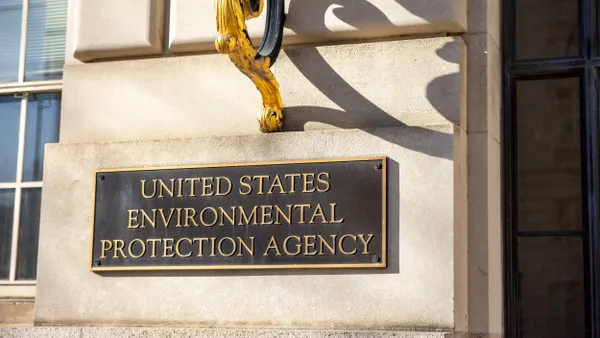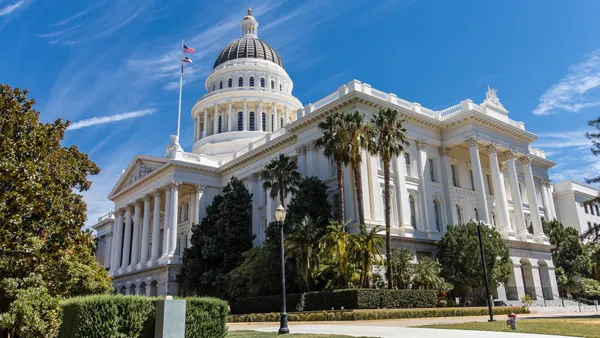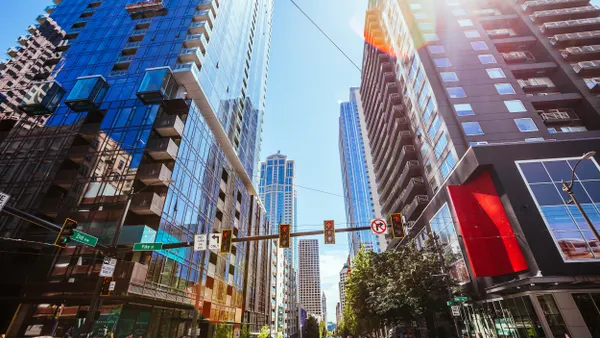Dive Brief:
- Currently, 55% of the world's population lives in urban areas, according to an updated report from the Population Division of the United Nations (U.N.) Department of Economic and Social Affairs. By 2050, that percentage is expected to rise to 68% of the world's population.
- Of the urban growth, the U.N. projects that 90% will happen in Asia and Africa. Three counties — India, China and Nigeria — will collectively account for 35% of the growth by mid-century.
- The world’s largest city is Tokyo, with a population of 37 million, followed by Delhi (29 million), Shanghai (26 million), Mexico City (22 million) and Sao Paulo (22 million).
Dive Insight:
The trend toward urbanization carries many benefits; consolidating a growing population in a smaller space can help minimize the environmental footprint, conserve resources and create a car-free environment. John Wilmoth, head of the U.N. population division, told The Guardian that the "increasing concentration of people in cities provides a way of more economically providing services," adding that urban populations traditionally have more access to health care and education services.
That, however, requires planning and a smooth transition for developing countries, and the trend toward megacities will have some necessary growing pains and a substantial policy lift for governments. The U.N. report says that by 2030, the world will have 43 megacities of more than 10 million inhabitants — up from 33 now — with many of them in fast-growing regions of Asia and Africa. That means countries will have to rapidly build up housing, health care facilities, energy and transportation infrastructure, with a particular emphasis on the urban poor. Cities growing too fast can strand residents in slums or poor areas without proper infrastructure, or leave residents without access to well-paying jobs that support an urban lifestyle.
A previous U.N. study found nearly 90% of cities were in areas located in areas highly vulnerable to economic losses from natural disaster, another challenge as people consolidate in megacities.
The U.N. emphasizes that governments should focus on "integrated policies to improve the lives of both urban and rural dwellers," with an emphasis on maintaining existing economic and social ties between the two areas.









